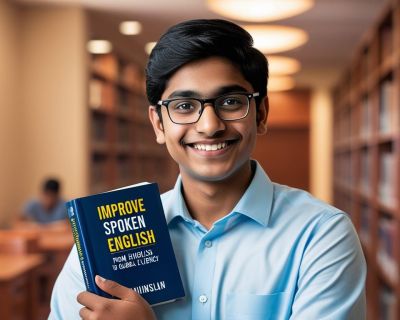Preparing for the IELTS exam can be a challenging task, especially for candidates juggling multiple responsibilities like work, studies, or personal commitments. Achieving a high IELTS score requires consistent effort and strategic time management. With a well-organized approach, even the busiest candidates can excel. This article provides practical time management tips to help you maximize your study efficiency and outlines how Kandor’s innovative platform simplifies IELTS preparation.
The Importance of Time Management in IELTS Preparation
Time management is a critical skill for IELTS success for several reasons:
- Comprehensive Coverage: The IELTS exam evaluates four key skills—Listening, Reading, Writing, and Speaking. Proper time management ensures that you dedicate sufficient attention to each section.
- Avoiding Last-Minute Stress: Cramming is ineffective for language proficiency. A steady, organized schedule helps you avoid unnecessary stress.
- Building Consistency: Regular practice is the key to mastering the exam format and improving your skills over time.
- Balancing Commitments: For candidates with work or study obligations, managing time effectively is essential to stay on track.
Time Management Tips for Busy IELTS Candidates
1. Set Clear Goals
Define your target IELTS score and break it down into smaller, actionable goals. For example:
- Improve your reading speed by 10 words per minute.
- Write one essay daily to strengthen your Writing Task 2 skills.
Having specific objectives helps you stay focused and track progress effectively.
2. Create a Study Schedule
Design a realistic study schedule that fits your daily routine. Allocate time blocks for each IELTS section, ensuring you cover all areas consistently. For example:
- Morning: Listening practice (30 minutes).
- Afternoon: Reading comprehension exercises (45 minutes).
- Evening: Writing tasks (1 hour).
Prioritize your weaker sections while maintaining a balanced approach.
3. Use Small Time Gaps Wisely
Maximize small pockets of time throughout your day. Listen to English podcasts or audiobooks during your commute, or review vocabulary while waiting in line. These brief sessions can add up and enhance your overall preparation.
4. Practice Under Exam Conditions
Simulate test conditions while practicing. Allocate 2 hours and 45 minutes—the duration of the actual IELTS test—for a full-length practice exam. This helps you build stamina, improve time management, and identify areas needing improvement.
5. Avoid Multitasking
Focus on one task at a time to maintain concentration and improve efficiency. For instance, when practicing Listening, dedicate your full attention to the task rather than combining it with other activities.
6. Take Breaks
Scheduled breaks are essential to avoid burnout. Follow the 50-10 rule: study for 50 minutes and take a 10-minute break. This keeps your mind fresh and enhances productivity.
7. Review and Reflect
Spend time analyzing your performance after practice sessions. Identify mistakes, understand the reasons behind them, and make necessary adjustments. Reflection is a powerful tool for improvement.
8. Use Quality Resources
Invest in reliable IELTS preparation materials. High-quality resources, such as official practice tests, sample essays, and vocabulary lists, save time and provide valuable insights.
9. Focus on Speaking Practice
Speaking is often the most daunting section for many candidates. Dedicate time daily to practice speaking aloud, recording your responses, or engaging in conversations with peers or tutors.
10. Stay Consistent and Motivated
Consistency is the foundation of success. Celebrate small achievements and remind yourself of your end goal—whether it’s studying at a dream university or advancing your career abroad.
How Kandor Simplifies IELTS Preparation for Busy Candidates
Kandor, an AI-powered platform, revolutionizes IELTS preparation by offering personalized, efficient, and flexible solutions. Here’s how Kandor helps busy candidates manage their time effectively:
1. Personalized Study Plans
Kandor’s AI technology creates customized study schedules based on your strengths, weaknesses, and availability. This ensures that you focus on what matters most, saving time and effort.
2. Progress Tracking
With real-time progress tracking, Kandor provides insights into your preparation journey. You can identify areas that need improvement and adjust your strategy accordingly.
3. Flexible Learning Options
Kandor’s online platform allows you to study anytime, anywhere. Whether you have 15 minutes or 2 hours, Kandor helps you make the most of your available time.
4. High-Quality Resources
From interactive lessons to IELTS-specific practice tests, Kandor offers a wide range of premium resources tailored to the exam format.
5. Expert Guidance
Connect with experienced tutors on Kandor for personalized feedback and tips. Their insights ensure that you avoid common pitfalls and stay on track.
6. Confidence-Building Exercises
Kandor includes exercises designed to boost your confidence in all four sections of the IELTS exam, particularly in Speaking and Writing.
Achieve Your IELTS Goals with Kandor
Balancing IELTS preparation with a busy schedule can be challenging, but with effective time management and the right tools, it’s entirely achievable. Kandor empowers candidates to overcome these challenges by offering personalized, flexible, and efficient solutions tailored to individual needs.
Whether you’re a student aiming to study abroad or a professional seeking career advancement, Kandor ensures that your IELTS preparation journey is smooth, organized, and rewarding. With its AI-driven platform, expert support, and commitment to your success, Kandor is your ultimate partner in achieving your dream score and unlocking global opportunities.
By implementing these time management tips and leveraging Kandor’s innovative features, busy candidates can prepare effectively for the IELTS exam and take a confident step toward their academic and professional aspirations.




















